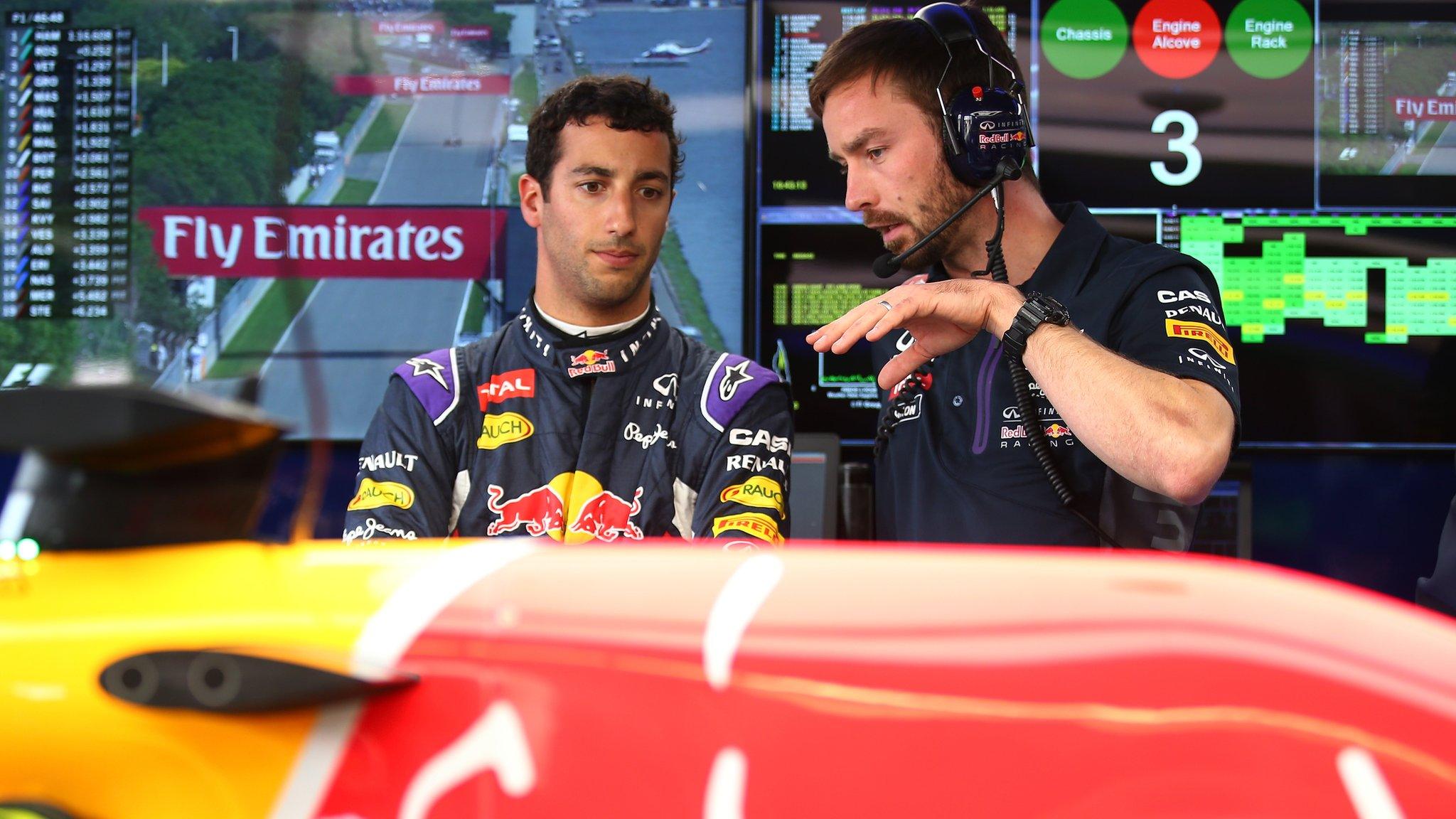Austrian GP: Nico Rosberg throws hat in the Ring for F1 title
- Published
- comments
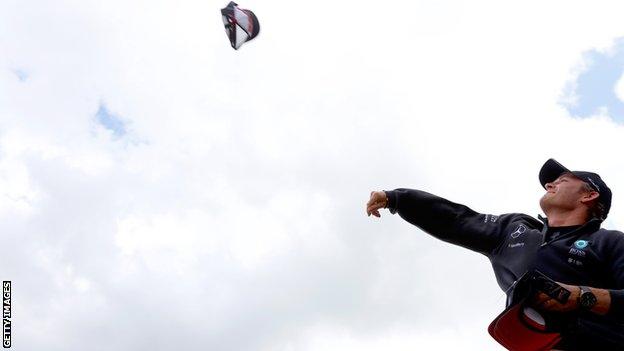
Nico Rosberg only lost out in qualifying to Lewis Hamilton in Austria
"Why don't you drive every race like this?" former grand prix driver Gerhard Berger asked Nico Rosberg on the podium in Austria on Sunday after arguably the most impressive win of the German's Formula 1 career.
With that one cheeky question, Berger got right to the nub of what has so far made the difference between Rosberg being a very, very good Formula 1 driver and a great one.
Rosberg's third victory of the year moved him to just 10 points behind Hamilton in the world championship. And the interest the result creates goes beyond the mathematical reality of what is now a very tight title battle.
It was the first time this year - and arguably, depending upon how you look at it, the first time since the start of 2014 - that Rosberg had beaten Hamilton in a straight fight without there being any nagging "what ifs" hanging over the result.
Hamilton beat Rosberg in all the first four races to build a 24-point championship lead, at which stage the world champion appeared in complete control of the season and well on course for a third world title.
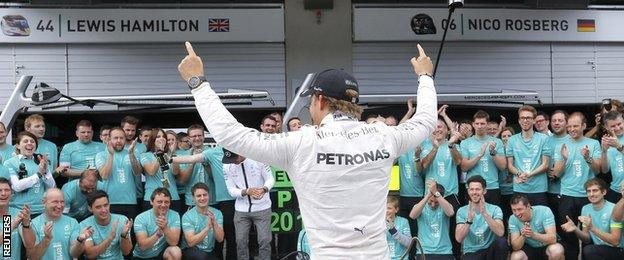
The 2015 season is shaping up to be a fight between the two Mercedes drivers after all
Until Austria, Rosberg's only wins had been in Spain and Monaco. In Barcelona, Hamilton was stuck behind Sebasian Vettel for much of the race after a bad start, so the question of what would have happened had the Mercedes drivers raced throughout remained unanswered.
In Monaco, Rosberg was gifted victory by a Mercedes team error, a decision to call Hamilton in for an unnecessary late-race pit stop during a safety car period which dropped him to third.
Hamilton bounced back from that with an emphatic victory in Canada two weeks ago, and the sense that there was no real threat to the Englishman's ascendancy remained.
After Austria, though, things look a little different.
Hamilton looked uncomfortable throughout the practice sessions at the Red Bull Ring, suffering a series of spins or other off-track moments.
Rosberg appeared much more at home. In first practice, he did what Hamilton has done for the last two races - come out of the blocks fast and set a time well out of reach of his team-mate in the first half-hour of the session.
He went on to head Hamilton in both sessions on Friday, and again in the first two parts of qualifying, only for the world champion to pull out a stormer of a lap at the start of the top 10 shoot-out and take pole.
Would Rosberg have pipped Hamilton had he not gone off on the last corner of his final lap, after Hamilton had spun on the first of his? It was too close to call - Rosberg was neck and neck with his team-mate's time when he lost the car into Turn Nine.
As it was, Rosberg didn't need to. A better start put him alongside Hamilton on the run to the first corner, and therefore into the lead, and after fending off an attack in Turn Two Rosberg never looked back.
Hamilton admitted afterwards that he could do nothing about Rosberg: "Nico did a fantastic job. It was very close in the first stint, but he was quicker in the second stint. I lost it at the start."
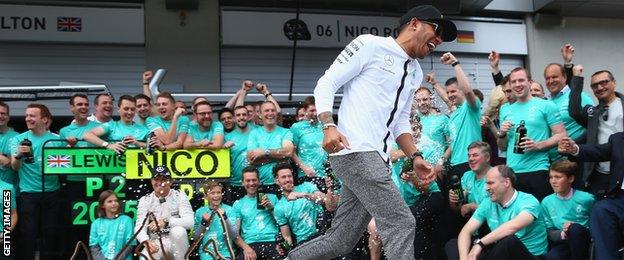
Hamilton's lead in the championship is now down to 10 points
As he pulled into parc ferme, it was clear how much this win meant to Rosberg. His smiling eyes visible through the narrow gap in his helmet, he struggled to get out of the car and then made a bad attempt at crowd-surfing with his Mercedes mechanics.
BBC F1 co-commentator David Coulthard said: "This level of performance from Nico Rosberg this weekend, he needs to deliver that more often. And if he can…"
The sentence went unfinished, but the sentiment was clear. If Rosberg can drive like this more often, Hamilton would have a real fight on his hands.
But whether he can is a different question. So far, Rosberg has not been able to do so consistently enough for it to be credible to suggest he can mount a convincing season-long challenge to Hamilton.
Coulthard has a unique insight into this scenario because it is not so very different from the one that faced him throughout much of his career.
The Scot was team-mate at McLaren for many years to Mika Hakkinen. Like Hamilton, Hakkinen had a towering natural talent, incredible speed but an occasional vulnerability.
When absolutely everything was right, and the car was perfectly set to Coulthard's liking, the Scot could match and beat Hakkinen. But the natural order was that Hakkinen was simply that bit quicker and better, a fact Coulthard happily admits now.
One suspects that once he hangs up his helmet, Rosberg will do the same. But right now he can't afford to, because he is still an active driver, and his biggest problem sits across the garage or the debrief room from him for four days every race weekend.
For Rosberg, the question of how to beat Hamilton is still very much a live issue, so the fact that he may simply have a small but fundamental inferiority to his team-mate is one he cannot allow to enter his head.
Tale of the tape | ||
|---|---|---|
Race | Hamilton result | Rosberg result |
Australia | 1st | 2nd |
Malaysia | 2nd | 3rd |
China | 1st | 2nd |
Bahrain | 1st | 3rd |
Spain | 2nd | 1st |
Monaco | 3rd | 1st |
Canada | 1st | 2nd |
Austria | 2nd | 1st |
The difficulty of the task facing Rosberg was another aspect summed up succinctly by Berger on the podium.
"Lewis," said the man who was Ayrton Senna's team-mate for three years and also raced against Michael Schumacher, Alain Prost and Nigel Mansell among others, "you're one of the quickest guys I have ever seen in F1."
Last year was a sobering one for Rosberg. He might have won five races but in each one of them Hamilton was taken out of the equation in one way or another, more often than not through no fault of his own.
Worse than that, there were races when Hamilton was either slower and in front - such as in Bahrain and Spain - or faster and behind - such as in Hungary, Italy and the US - and was able to beat Rosberg each time anyway.
It seemed at the time that, as a race driver, Hamilton had Rosberg covered, even if their absolute pace was not that different over a qualifying lap.
Rosberg went away over the winter and said he would address the issues he had in races, but until Austria he had not had much of a chance to prove whether he had because Hamilton's qualifying form has been so good - Rosberg has beaten him only once on a Saturday afternoon in eight races this year.
But on Sunday Rosberg said he felt he had indeed turned a corner.
"I had a good start and then good pace in the race - that is what I'm most happy about," Rosberg said.
"I think I have found what I needed to find last year in terms of in the races and that's what is really working out for me this year."
When you ask Rosberg how he can beat Hamilton on a consistent basis, he will often talk about the "small differences" that he needs to address.
In Austria, he found them, put the pieces together, and produced a race weekend as convincing as any in his career.
Doing so has given him a real chance of making a fight of a season that until now had appeared already to be beyond him.
There seems no doubt that Hamilton's dominance in 2015 so far has been partly responsible for some of the criticism F1 has been getting as a sport. When a championship has not yet caught fire, and there are fewer racing-related issues to talk about, other issues tend to pop to the surface to fill the vacuum.
In that sense, Rosberg's win on Sunday was not only just what he needed, it was what the sport needed, too.
To keep that impression going, though, Rosberg is going to have to find a way to fit those pieces together a lot more often than he has in the past.
- Published21 June 2015
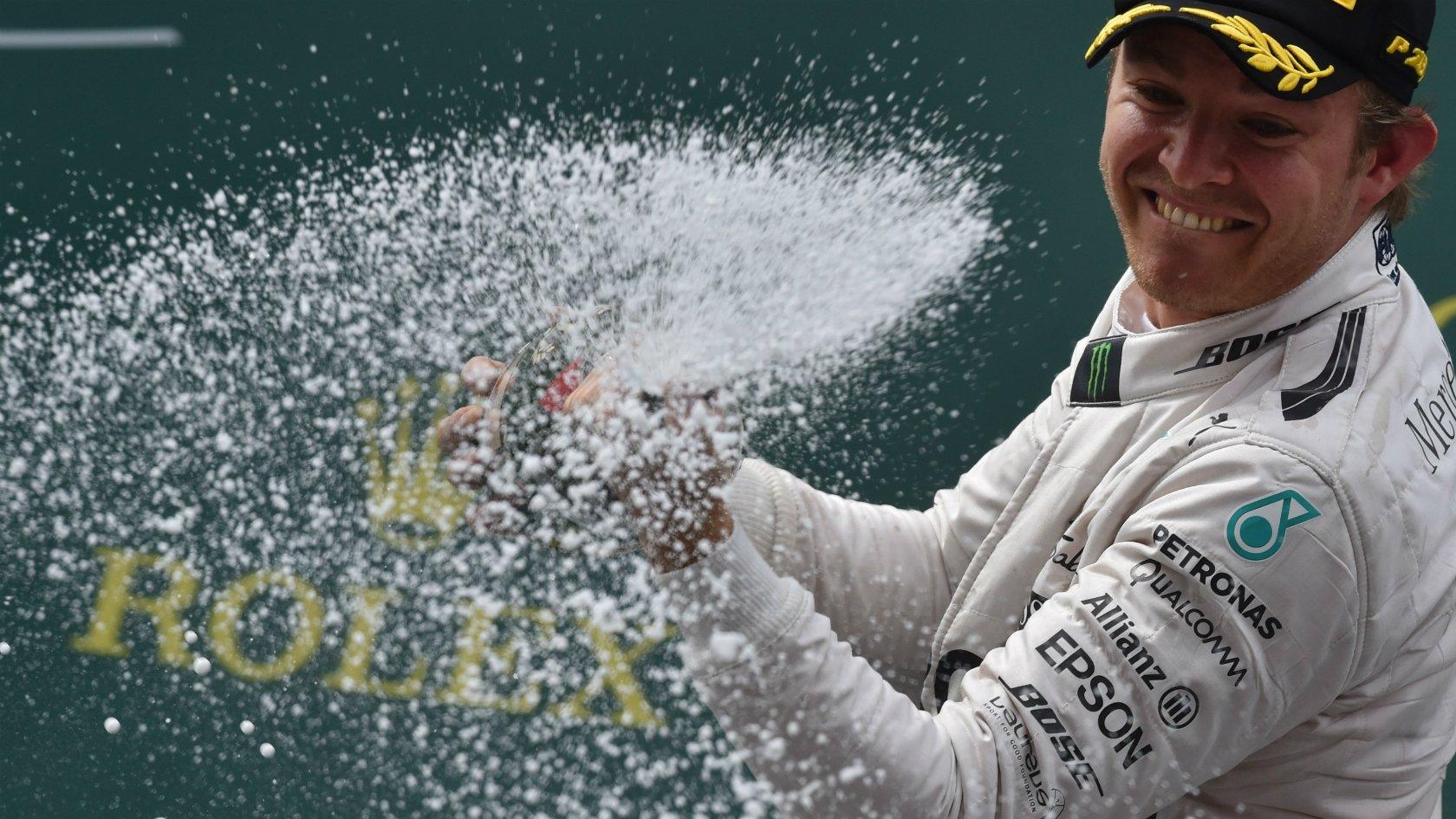
- Published21 June 2015
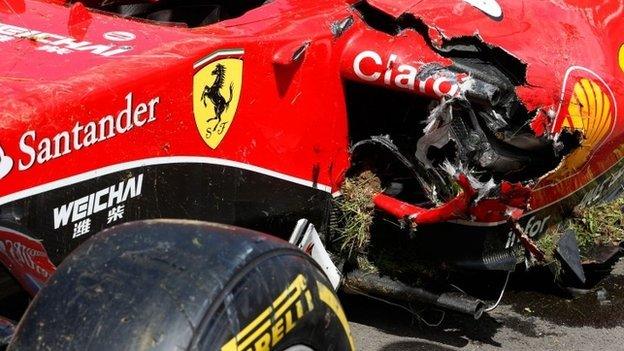
- Published21 June 2015
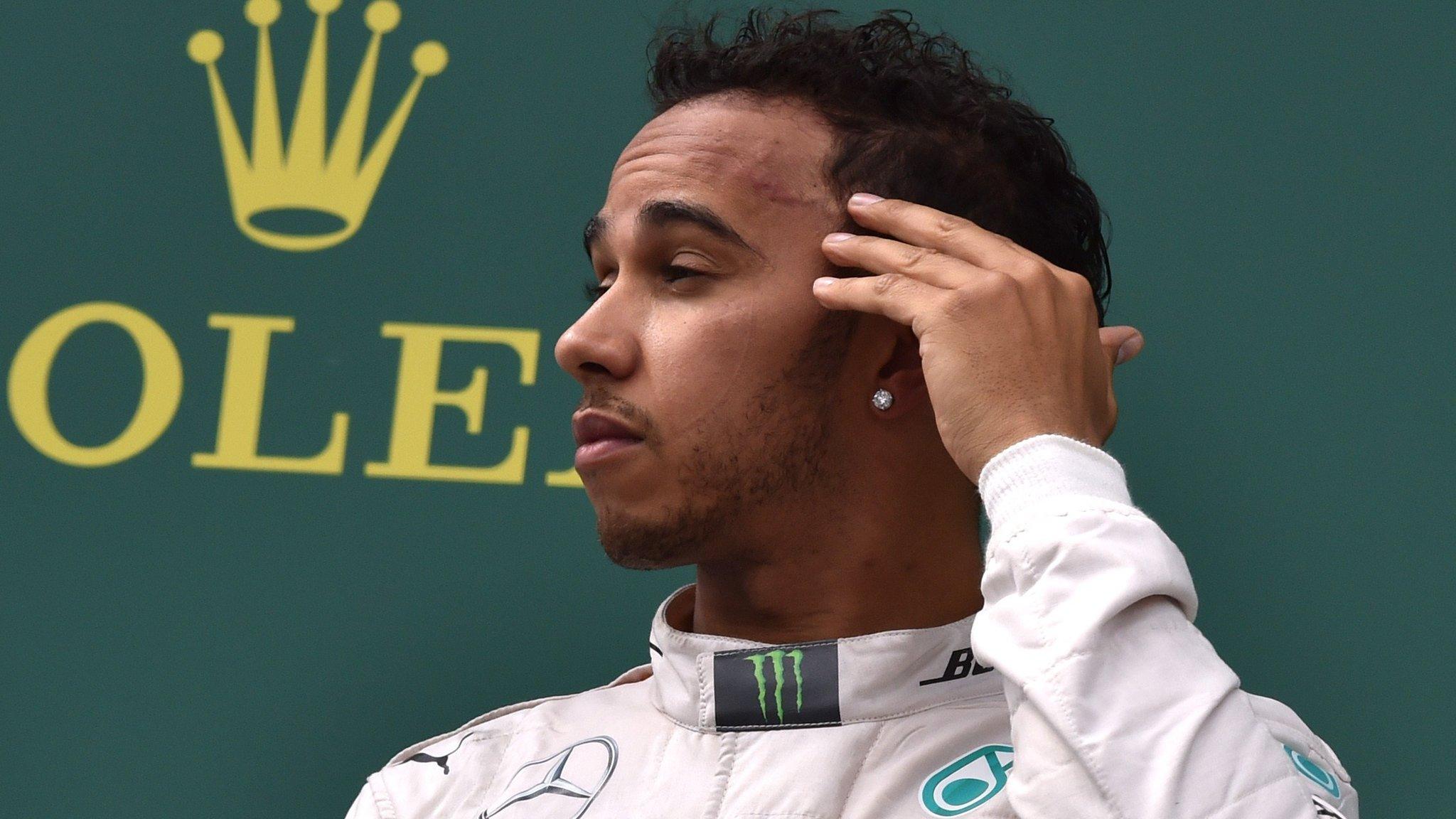
- Published20 June 2015
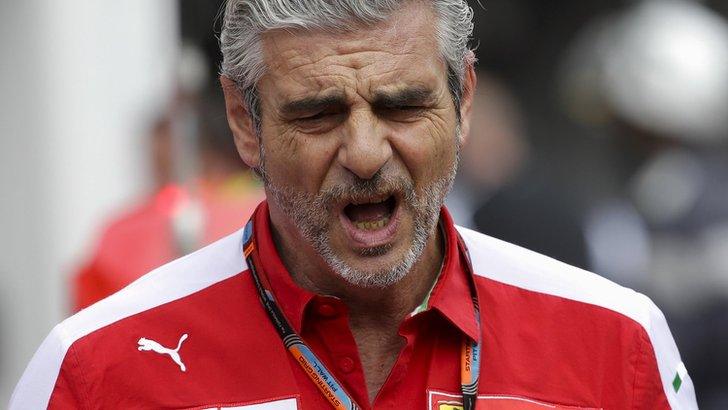
- Published19 June 2015
